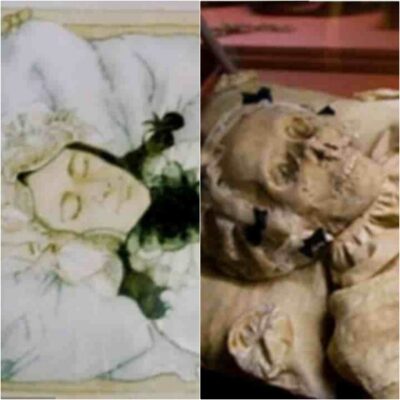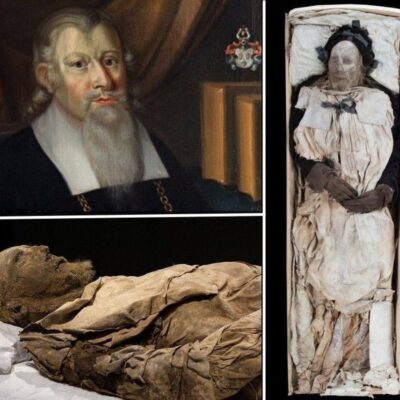Most people have heard warnings about not messing with the pharaohs’ treasures. While many legends and speculations surrounding the tombs of ancient Egyptian rulers are often dismissed as a coincidence, one case has attracted great public attention because of its The mystery so far has not been satisfactorily answered.

King Tut’s trumpets consisted of one silver and one bronze. Photo: Wikipedia
Those are the strange things that happen around a pair of trumpets buried with Pharaoh Tutankhamun (also known as King Tut), the youngest pharaoh in the history of ancient Egypt.

History books record, Tutankhamun ascended the throne in 1332 BC at the age of 9 and died suddenly and mysteriously at the age of 18.

A pair of trumpets, one of silver and one of bronze, are among the ancient treasures unearthed at King Tut’s tomb. They have just been shipped to the UK to participate in the exhibition Treasures of pharaoh Tutankhamun at the Saatchi gallery in London. However, visitors are warned not to try blowing these trumpets.
Hala Hassan, curator of the Tutankhamun collection at the Egyptian Museum, said the brass trumpet possesses “magical power” and that “whenever someone blows it, war will happen”.

Archaeologist Howard and a colleague are digging inside the coffin of King Tut. Photo: khanacademy.org
In fact, the pair of trumpets has been rarely used since archaeologist Howard Carter excavated King Tut’s tomb in 1922.
Silent for more than 3,000 years, the trumpets were finally used to perform in a BBC concert broadcast live to 150 million listeners worldwide in 1939.
An unexpected incident caused the entire Egyptian capital Cairo to lose power and the concert had to take place in candlelight.

During rehearsals for a 1939 concert, King Tut’s silver trumpet cracked, injuring a trumpeter. Photo: Wikipedia
According to Rex Keating, a BBC broadcaster at the time, during rehearsals for the concert, King Tut’s silver trumpet cracked. Alfred Lucas, a member of Mr. Carter’s archeology team, was so upset that he had to be hospitalized.
Later that year, the most devastating war in world history broke out.

After that, the old trumpets were only played twice, once before the Arab-Israeli War in 1967 and just before the Gulf War in 1991.
Ahram, Egypt’s leading newspaper, reported: “A week before the revolution, during the process of photographing and documenting, one of the museum staff blew King Tut’s trumpet. A week later, revolution broke out. The same incident occurred before the war in 1967 and before the Gulf war in 1991, when a student tried to blow a trumpet while doing a thorough study of the Tutankhamun collection.”

The bronze trumpet was stolen from the Cairo museum, Egypt during a riot in 2011. However, it was secretly returned to the museum a few months later.
For now, experts believe the best thing is that King Tut’s trumpets should never sound again.
“Everybody is curious to hear the sound of these instruments, but it’s too dangerous,” says Egyptologist Margaret Maitland.

Close-up decorative pattern of the trumpet pair.
The curator of exhibitions at the Saatchi Gallery, Dr Tarek el-Awady, has stressed that British tourists who come to see the artifacts should not feel threatened by the ancient curses of the trumpet.
“Travelers will not be cursed at all because we are here only to admire the wonder and beauty of Tutankhamun. Just saying the name of this pharaoh is enough to honor the king so ancient by the ancient Egyptians. Dai always want their names to be remembered later.”











